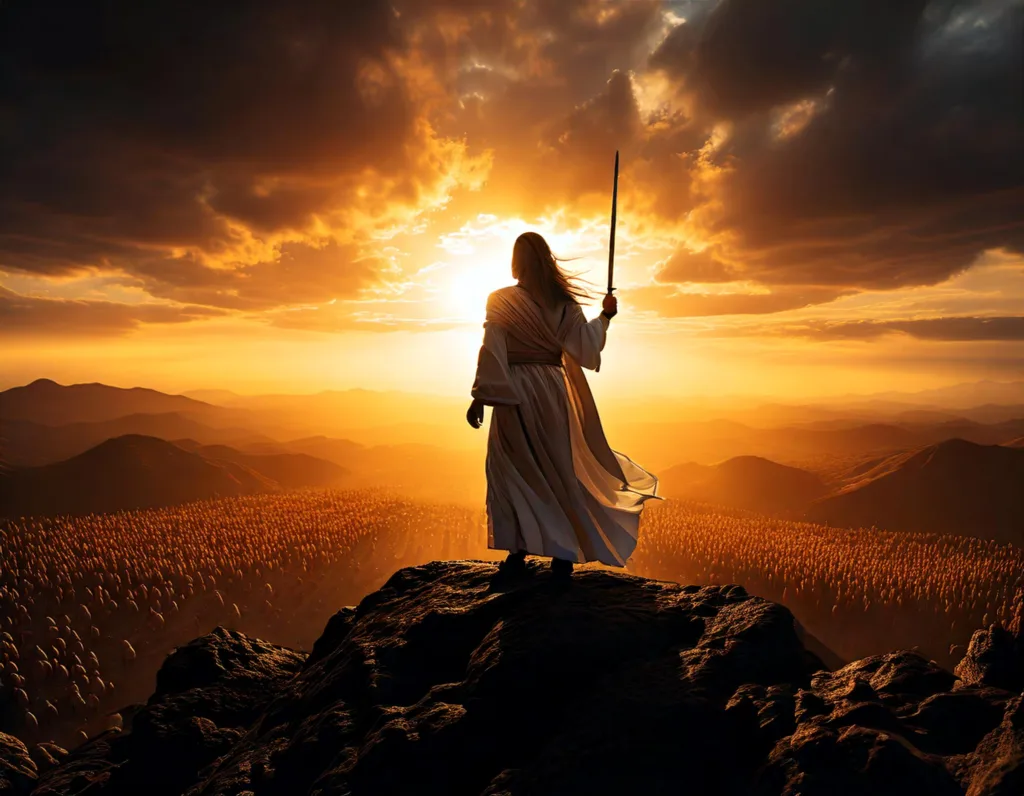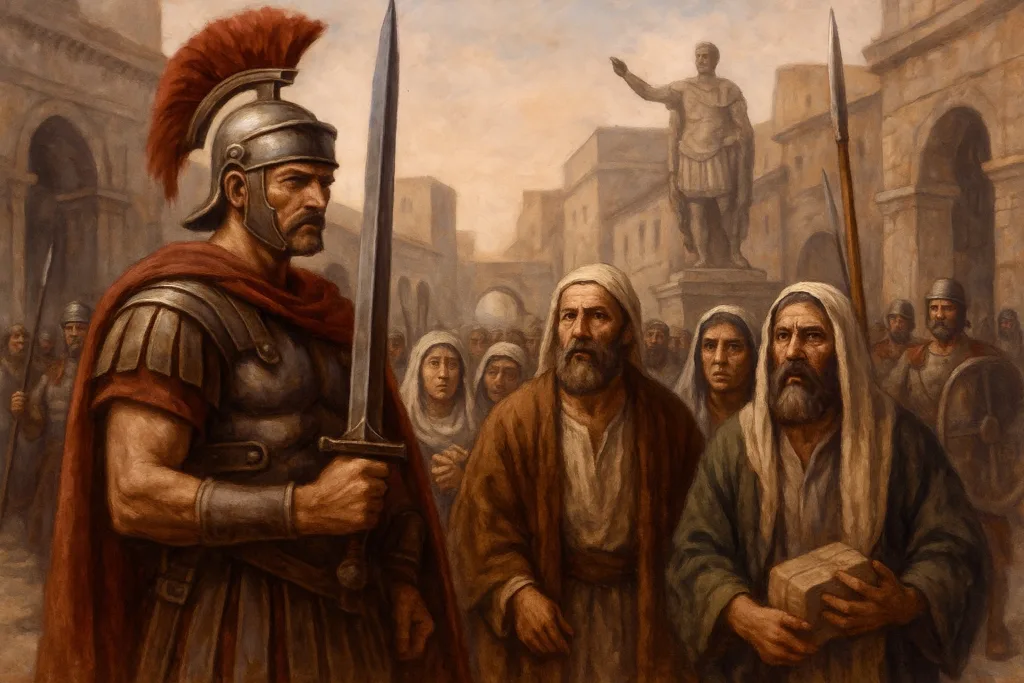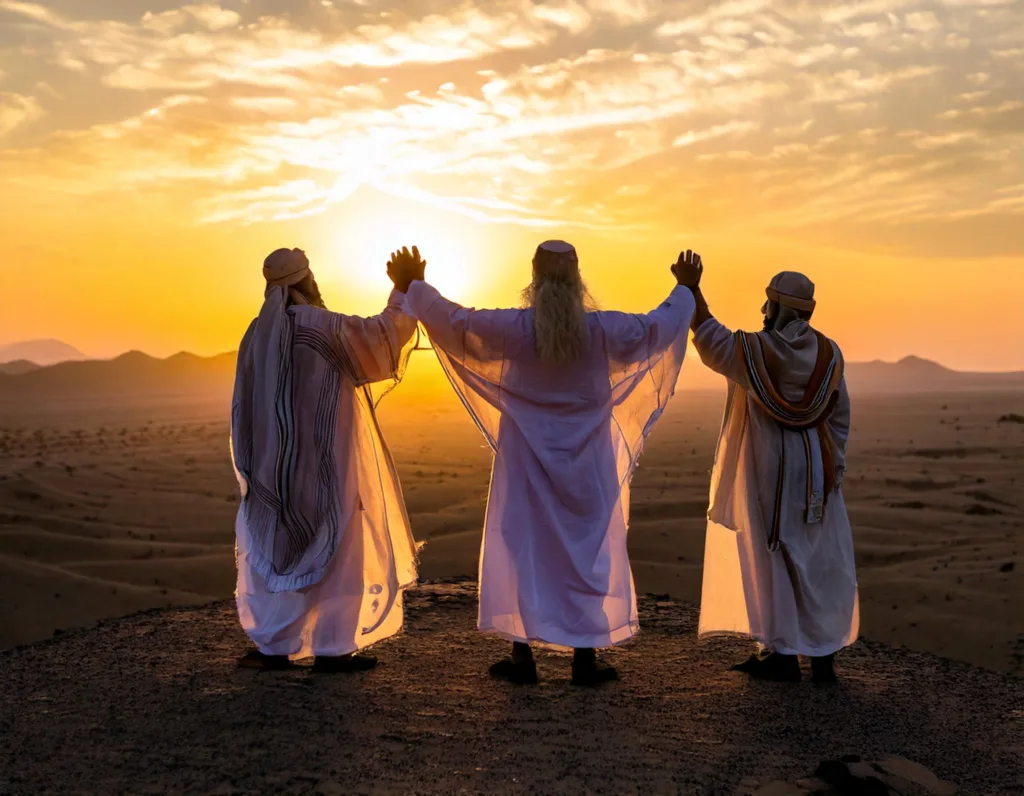In a world ruled by domination, where kingdoms are claimed by violence and the strong prevail, Yeshua introduced a kingdom unlike any other—a kingdom that spreads not by swords, but by surrender. While the world trusts in force, the Gospel of peace calls us into a kingdom where the power flows from humility, not hostility.
Yet this peace is not passive. It is fiercely pursued, not flippantly received.

📜 The World’s Way: Force and Control
From the moment sin entered the world, human history has been marked by the pursuit of control. Nations have risen not through righteousness, but through conquest. Cain built a city; Nimrod built an empire; Pharaoh built a slave state.The kingdoms of men are almost always established by dominance—by outwitting, outlasting, or overpowering others. This is the language the world understands: strength wins, weakness loses.

In the time of Yeshua, this pattern was fully alive. The Roman Empire ruled by intimidation and military force, crushing dissent and exalting Caesar as lord. The sword defined justice, and peace came at the edge of a spear. Beneath that brutal regime, the Jewish people—oppressed, taxed, and scattered—longed for deliverance. Their prophets had spoken of a coming Messiah, a King from David’s line, and they naturally envisioned a political liberator, one who would overthrow Rome and restore national sovereignty.
They wanted someone like David—a warrior who would slay Goliath and drive out the enemies of God. They looked for one who would rally an army, march on Jerusalem, cleanse the temple, and set up a throne of earthly justice. Their hope was sincere—but their expectation was misaligned with Heaven.
Then came Yeshua.
No sword. No war horse. No army.
“Behold, your King is coming to you, humble, and mounted on a donkey.” —Matthew 21:5 (NASB)
He entered not as a conqueror, but as a servant. He did not challenge Caesar with steel, but disarmed principalities through the cross. His enemies expected a revolution by force. Instead, they saw a Redeemer by grace. And because He did not match their vision of power, many missed Him entirely.
The world has always worshiped power—but God reveals His glory through weakness, His victory through surrender, and His kingdom through peace.

🕊️ The Gospel of Peace
The Gospel is called the “Gospel of Peace” for a reason. It is not only the message of reconciliation between man and God—it is the method by which the Kingdom advances. The peace of God is not weakness. It is power on a completely different plane.
Paul writes,
“Therefore, having been justified by faith, we have peace with God through our Lord Jesus Christ.” —Romans 5:1 (NASB)
This peace isn’t circumstantial. It is not the fragile quiet that comes from avoiding conflict. It is the deep restoration of fellowship between the Creator and His creation. It silences condemnation. It heals the wounds of sin. It brings wholeness where there was division. The Hebrew concept is shalom—a peace that makes complete.
When Paul describes the armor of God in Ephesians 6, he says:
“…and having strapped on your feet the preparation of the gospel of peace…” —Ephesians 6:15 (NASB)
This detail matters. The Roman soldier’s sandals were studded for grip in battle. In the same way, the Gospel of peace gives believers sure footing in a world that is hostile to holiness. We do not advance the Kingdom by force—but we do stand firm, and we move forward, led by the message of reconciliation (2 Corinthians 5:18–20).
The early church modeled this. They didn’t fight Rome—they outlived it. They didn’t rebel with arms—they radiated Christ. They overcame not by domination but by devotion, enduring ridicule, prison, and martyrdom with a joy rooted in peace the world could not touch.
Even Jesus, who could have called legions of angels (Matthew 26:53), chose instead to be the Lamb who was slain. His greatest victory came not from resisting the cross, but embracing it.
This is the strange paradox of the Gospel:
The more the world pressed against the Church, the stronger she stood.The more they took from her, the more she gave.
The more they reviled her, the more she loved.
Why? Because she carried the Gospel of peace.

⚔️ Misunderstood Force: “The Kingdom Suffers Violence”
Some stumble over Jesus’ words:
“From the days of John the Baptist until now the kingdom of heaven suffers violence, and violent men take it by force.”
— Matthew 11:12 NASB
At first glance, this seems to contradict the peaceful nature of the Gospel. But this passage is not a call to arms—it is a call to urgency. The word translated “violent” can also imply fervent, forceful, resolute. Yeshua is describing those who are spiritually desperate, those who will not be satisfied with anything less than the fullness of God’s reign.
It is echoed in Luke 16:16:
“The gospel of the kingdom of God has been preached, and everyone is forcing his way into it.” —NASB
This isn’t about human violence—it’s about spiritual pursuit. Think of the woman with the issue of blood, who pressed through the crowd to touch Jesus’ garment (Mark 5:27–28). Think of Bartimaeus, who cried out all the more when the crowd tried to silence him (Mark 10:48). Think of the paralytic’s friends who tore open a roof to lower him before Jesus (Mark 2:4).
They were forceful—but not with weapons. They were desperate for the King, and they refused to be denied.
🔄 Peace and Force in Contrast
Here is a simple table to illustrate the difference:
| The Way of Force (World) | The Way of Peace (Gospel) |
|---|---|
| Wins by domination | Triumphs through surrender |
| Exalts strength | Glorifies meekness |
| Rules by fear | Leads through love |
| Guards territory | Invites transformation |
| Uses compulsion | Moves by conviction |
| Trusts in the sword | Trusts in the Spirit |

✝️ The Gospel in Action
The early church did not conquer the world by force, numbers, or strategy—they triumphed by carrying the presence of Yeshua, the Prince of Peace. In a hostile world, their strength was not political influence or cultural sway, but the indwelling Spirit of God, alive and active within them. They were living temples—walking vessels of peace, power, and purpose.
When threatened by authorities, Peter and John did not retreat or retaliate. They declared with holy defiance, “We cannot stop speaking about what we have seen and heard.” (Acts 4:20, NASB). Their boldness came not from bravado, but from having been with Jesus (Acts 4:13). When Stephen, full of the Holy Spirit, was dragged outside the city and stoned to death, he looked to Heaven and cried out, “Lord, do not hold this sin against them!” (Acts 7:60, NASB). Even as the stones struck his body, peace reigned in his spirit.
Paul and Silas, unjustly beaten and locked in the depths of a Philippian prison, did not curse the darkness—they sang hymns at midnight (Acts 16:25). Bound in chains, they released the fragrance of Heaven. The peace of God guarded their hearts, and the power of their praise shook the prison foundations.
The Gospel of peace is not the absence of conflict—it is the manifest presence of Christ in the center of it. It is light that shines in darkness and cannot be overcome. It is the Spirit within us that makes us more than conquerors—not by removing trials, but by sustaining us through them.
“Do not be overcome by evil, but overcome evil with good.” —Romans 12:21 (NASB)
This is the power of a surrendered life. This is the victory of peace over force. This is the Gospel in action.
🧎 A Call to the Church
Beloved, the temptation is strong to take up the tools of the world to fight the battles of the Kingdom. But we must not trade the power of the cross for the illusion of control. We do not need louder voices—we need purer hearts. We do not need sharper swords—we need deeper wells.
Let us be a people who carry the Gospel of peace with fire in our bones. Let us be forceful in faith, fervent in prayer, and peaceful in our witness.
The world does not need a church that imitates its aggression. It needs a church that reveals its Savior.
⸻
The warrior rides with sword in hand,
But You, O Lord, with nail-pierced palm.
Your voice is peace across the land—
A King who conquers hearts with calm.
⸻

